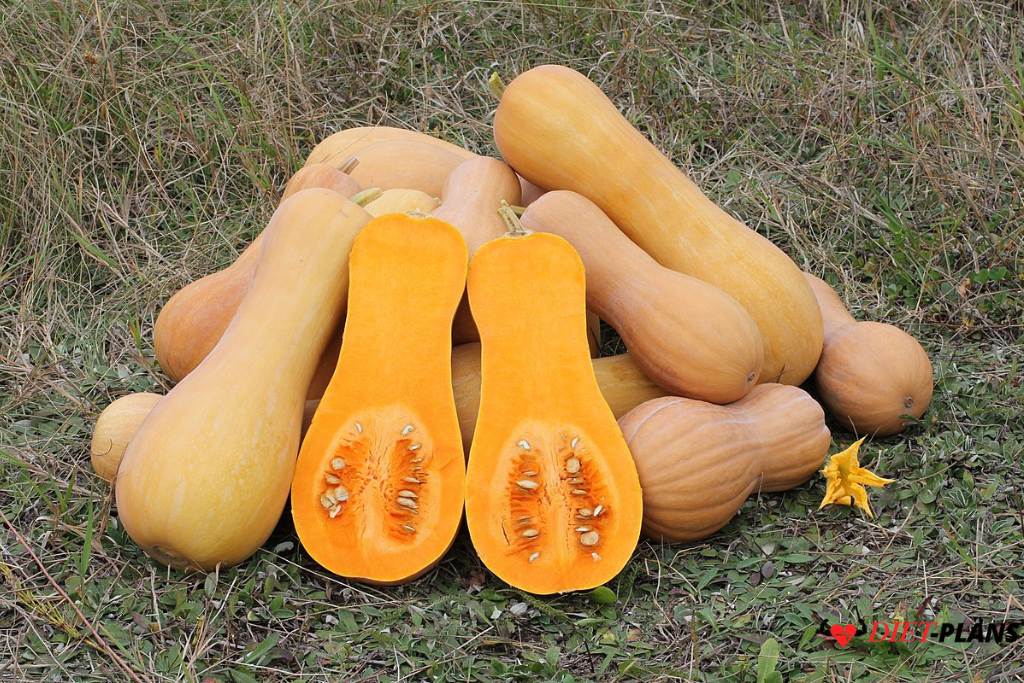A Versatile Fall Vegetable
Do you think it’s solely suitable for Thanksgiving meals or soup? Rethink your thoughts. Butternut squash is much more versatile than that. It tastes just as great grilled and served with salad greens as it does pureed and paired with pork. When you’re preparing dishes with canned pumpkin, you’re most likely enjoying butternut squash. It’s also a fantastic addition to baked bread or layered in lasagna. Butternut squash is not only delicious but also packed with numerous health benefits. Below, we dive into the health benefits of butternut squash that will make you include it more often in your meals.
1. Boosts Immunity
Butternut squash is rich in alpha-, beta-, lutein, and zeaxanthin carotenoids, which are abundant antioxidants responsible for its orange color. These antioxidants have been shown to support the immune system. The body converts beta-carotene (and to a lesser degree, alpha-carotene) into vitamin A, which plays a crucial role in maintaining a healthy immune system. Research indicates that the anti-inflammatory and antioxidant properties of carotenoids may also help in the prevention of cancer, heart disease, and cognitive decline. Incorporating butternut squash into your diet provides essential support for your immune health.
2. Combats Inflammation
Butternut squash is also an excellent source of vitamin C, another powerful antioxidant. Both vitamin C and carotenoids in butternut squash help protect your cells from damage caused by free radicals. Free radicals are harmful molecules that contribute to inflammation and are linked to various chronic diseases. Regular consumption of butternut squash can help reduce inflammation and protect your body from the harmful effects of oxidative stress, making it an important addition to an anti-inflammatory diet.
3. Supports Mental Abilities
Butternut squash contains lutein and zeaxanthin, two carotenoids that may play a key role in enhancing cognitive function. These carotenoids are the only ones capable of crossing the blood-retina barrier to form macular pigment in the eye. Studies have linked the concentration of lutein and zeaxanthin in the retina to their levels in the brain, making them useful biomarkers for assessing cognitive function. One study found that higher lutein levels in the brain were associated with improved cognitive abilities, such as memory, learning, and language skills. Eating butternut squash can help support your brain health.
4. Promotes Eye Health
Butternut squash is a rich source of vitamin A, which is essential for maintaining healthy eyes. The beta-carotene in butternut squash is converted into vitamin A in the body. Vitamin A helps prevent night blindness and dry eyes. Additionally, lutein and zeaxanthin, the carotenoids found in butternut squash, are antioxidants that can help protect against age-related eye issues, including cataracts and macular degeneration. Regular consumption of butternut squash can support long-term eye health and may protect against vision loss as you age.
5. Supports Digestive Health
Butternut squash is an excellent source of both soluble and insoluble fiber, which play crucial roles in maintaining healthy digestion. Soluble fiber absorbs water during digestion, forming a gel-like substance that slows digestion. On the other hand, insoluble fiber helps food move more quickly through the stomach and intestines. This combination of fibers aids in improving overall digestion and may help with constipation. Soluble fiber in butternut squash also helps lower cholesterol levels by binding to cholesterol and moving it out of the body. Just one cup (140 grams) of raw diced butternut squash provides about three grams of fiber, making it an excellent food for digestive health.
Butternut squash isn’t just a fall favorite—it’s a nutrient-packed vegetable with impressive health benefits. From boosting immunity and fighting inflammation to supporting cognitive function and eye health, incorporating butternut squash into your diet offers many advantages. Whether you enjoy it as a side dish or as the main ingredient in various recipes, make butternut squash a regular part of your meals for improved overall health.

